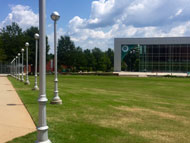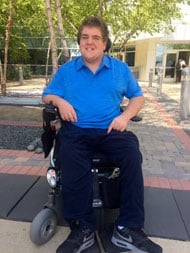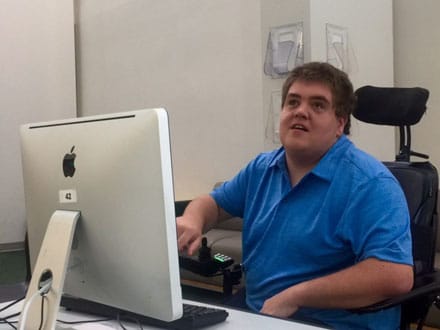
The U.S. News & World Report ranking underscores what scholars and businesses have known for years, that graduates of highly diverse colleges become uniquely prepared as both citizens and leaders in their local, state, national and international communities. In a world that is becoming smaller and smaller as technology advances, it’s safe to say that graduates of GGC have a critical edge.
There is another area of diversity in which this crown jewel of Gwinnett earns high marks, and that’s in the area of inclusion. According to Sally Ramey, GGC’s Assistant Director for Publications, the Department of Disability Services assists about 500 enrolled students with special needs of many types – mobility, vision, hearing, dyslexia, comprehension and more; that number increases every year. The school’s approach to including all students who wish to attend Georgia Gwinnett College, and who meet the same criteria academically as other students, is one more way in which this progressive, fast-growing institution values the individual.

“Coming from a high school in California to Grayson High School here in Gwinnett, I saw a big difference in the way I was viewed and treated by students and faculty,” said Power. “In California, I found that the students were a little stand-offish, but the faculty were friendly and accepting. For whatever reason, I experienced the opposite at Grayson.”

The thinking at GGC, and now at many other institutions of higher learning, is that the Jack Powers of the world are every bit as able not only to learn and contribute in college; they are just as able to make a difference in a world that is becoming smaller and by default, richly diverse. In other words, students who were not so long ago viewed as being “disabled” are now seen as simply being no more different than any other student. Just because a student requires a quiet test-taking environment, or a little more time to complete a quiz, does not mean that that student isn’t every bit as bright as the next one. “Different” is, after all, what makes the world an interesting place.
In Jack’s case, all he needs to do is give the Disability Department at least 72 hours notice of an upcoming quiz or test. Arrangements are then made for a quiet area in another classroom or in the library for him to take the quiz. Some of the tests are administered to him orally, some may be administered on the computer, and others may be given online. The point is whether Jack knows the material, not how he takes the test.
“Faculty and staff work cooperatively to ensure our students have access to the full college experience. When a student registers with the Disability Services office at Georgia Gwinnett College, we employ a collaborative process with the student to determine accommodations,” said Ramey. “We develop individual accommodation letters that the student gives to the professors indicating what accommodations the student is allowed in their classroom. We often meet with professors to go over any students’ individual needs. If there is ever a question regarding accommodations from the student or the professor we encourage open communication. Disability Services also takes part in new faculty orientation and faculty mentor trainings.”
“At the beginning of every semester, I give each of my professors my accommodation letter. I can get a note-taker for a class if I need to. Sometimes though, I just ask a friend in class to take notes and share them with me. It just depends on the situation. I can get more time to complete a quiz, and I can take the quiz in a quiet environment,” Power explained. “But what’s really great is when a professor puts all of his PowerPoint (presentations) and other lecture notes online,” he said. Accessibility of information is key, and that can be said for any student.
According to Power, professors each have a school-issued phone, and that makes them available to students, whether they require special accommodations or not. In short, said Power, “(GGC) is progressive and inclusive when it comes to students who need some sort of assistance.”

“I’d also like to see an ‘accessible’ line for every food and coffee vendor on campus, too,” Power said. “It can look – and sometimes be – awkward for me to carry a drink and my food.” Even with a fancy wheelchair, having a cup holder is not a given. Having a line that’s reserved strictly for people in wheelchairs or even on crutches would make life a little easier. “I’d also like to see more wheelchair accessible restroom stalls, and it’d be really nice if they were wider to accommodate a chair like mine,” Power added. “It’s dismaying to have to wait for a stall to become available, only to see an able-bodied person come out of the one stall reserved for wheelchair accessibility.” In other words, a little consideration goes a long way.
What’s the most important thing Power has learned as he has advanced his academic career? “I had a teacher tell me once that if I need help, I shouldn’t be afraid to ask for it because chances are, I can get it.”
For more information about Georgia Gwinnett College, visit www.ggc.edu.
Below: Jack Power in the Building B computer station


